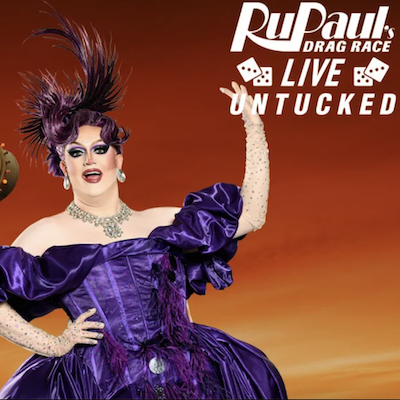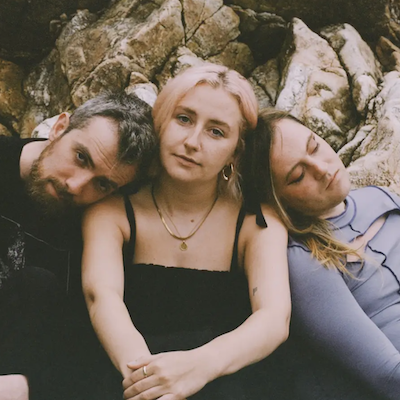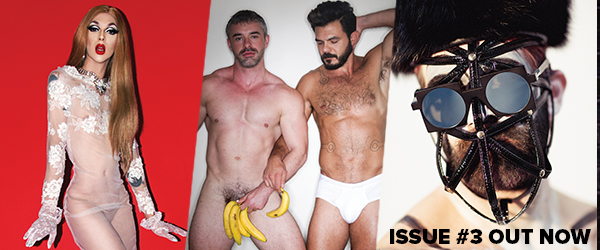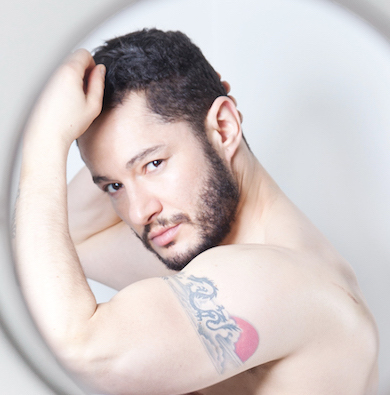
"I never thought I would ever be comfortable in my body, let alone comfortable enough to whip my top off for magazines"
Today – Thursday 31st March – is Trans Visibility Day. Loverboy’s Fallon Gold spoke with actor, writer, director, cover star, and trans advocate Jake Graf about being visible, being a role model, and telling our stories.
For the last few years there’s been more trans visibility than ever before. How can we build on that?
It is true that we have seen trans visibility soar, with people such as Laverne Cox appearing on the cover of Time magazine, models like Benjamin Melter and Aydian Dowling going for Men’s Health Ultimate Man competitions, and Caitlyn Jenner coming out so publicly on US television, but there is still much to be done before we are simply accepted into society without question. It’s a tough one, because whilst I do feel that more trans folk – particularly trans men – should be out and proud and visible in all their guises, I know that many would choose a quiet, anonymous life out of the limelight, and that is most certainly their right. For me, the more visibility the better, as cisgender folk will see that we are present in all walks of life, and are not just the butt of jokes, nor the freakish representations of old. We are just people, like everyone else.
What for you are the bonuses and the drawbacks to trans issues becoming more mainstreamed or at least there being more mainstream awareness of trans issues and culture?
I don’t really see that there are many drawbacks. I have been so vocal about my story because I know that when I was growing up, there were no positive trans role models for me to look up to and it was a very lonely and isolating experience. Nowadays, young trans kids have so many out and proud trans people to turn to, which I think is invaluable.
That people are more aware of the issues faced, be it regarding access to health care, self-determination, or simply being allowed to use the toilet of our correct gender, hopefully all of this will only help to increase empathy and understanding of what trans people go through on a daily basis.
There’s still much more visibility of trans women than trans men, but is this changing?
I think so. Generally, it does tend to be easier for the guys to go under the radar, which is why I think trans men have historically been much less visible, but hopefully that is changing, as they realise that tolerance and acceptance is increasing, and that their visibility can hugely impact on someone else’s life. When I first transitioned, I attempted to live ‘stealth’ for a while, which means not revealing one’s trans status publicly, but I found it absolutely exhausting, and fairly soul destroying. I guess it was like going back into the closet once you’ve already come out. Not terribly healthy!
Attention has been drawn to gender fluidity, gender nonconformity, agender and non-binary with people like Ruby Rose, Miley Cyrus, Angel Haze, JD Samson, Eliot Sumner, Jaden Smith, and Tyler Ford coming out as being outside of the binary. This seems quite radical to us, that male/female is being challenged by these public faces. How do you view this somewhat cultural phenomenon?
Well, I’m certainly not one to judge anyone else’s gender expression! Gender fluidity is not something that I can fully understand, as I’ve felt like a boy since birth. And, perhaps because of my experiences, I very much hold onto those binary ideas of what gender is to me. But I have many friends who identify as genderqueer or non-binary and fully respect them. We are who we are and there’s room for everyone. I really don’t understand those people that attack other sections of the community just because they present or identify differently. We hope that cisgender or straight folk won’t do that to us, yet don’t appear to hold ourselves to those same standards! I just believe that as long as you’re not hurting anyone, then we should all just live and let live.
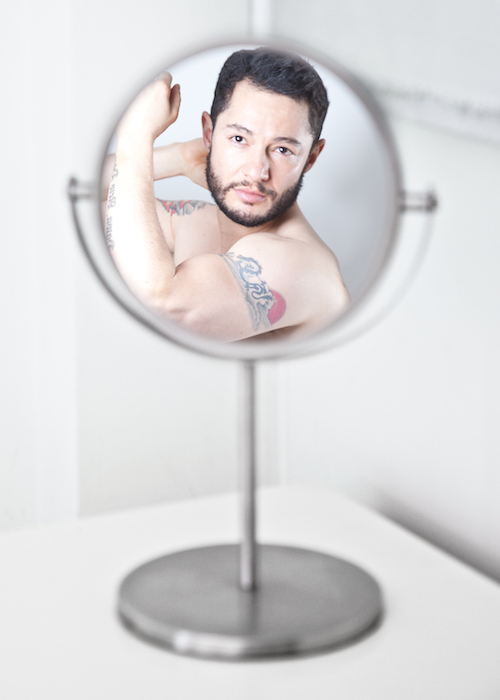
How important is it for us as queer people to tell our own stories and control our narratives and how important is it for these stories to be interwoven into fictions told by ‘straight’ filmmakers?
To be honest, I think that as long as these stories are being told authentically, positively, and in an informed manner, then it doesn’t really matter who is telling them. Much as I can write about a cisgender character, so a cisgender writer can write a trans character. We are all people, and I think it’s rather divisive to insist that only queer folk tell queer stories. Does that therefore mean that I’m excluded from telling ‘mainstream’ stories, as a queer trans man? I just think it’s very dangerous ground. For years we bemoaned the lack of representation onscreen, then we get great directors like Tom Hooper putting Lili Elbe’s story on the screen in the most visually stunning and empathetic manner and there is utter furore. I think that these are all human stories, and once we see them as just that, and not ‘queer’, ‘niche’ or ‘mainstream’ stories, then the battle will have been won.
You make trans visible as a filmmaker but also by being a visible trans cover star. How vital is it for there for be discernible role models and recognisable faces for trans audiences?
I think it is vital that we see ourselves out there, be it in the media, on the street, or through other forms of networking, simply to know that we are not alone! I have been very lucky this past year to feature on 6 magazine covers and garner lots of Press and attention, but I know that a lot of it is ‘right place, right time’. I am currently working on several projects which aim to give visibility to trans actors and writers and am a big believer in pushing others as much as possible. There is strength in numbers and the more fabulous, creative and successful trans folk that are out there for all to see, the better.
Your cover star status also means that you’re something of a pin up too. Do you get more feedback from the public about being a role model working in the industry, or is there as much fan mail that is appreciative of the fact that you’re basically a hot heart throb?
Ha. That’s very sweet! Again, I am very lucky in that I write films which people seem to relate to and which have been well received across the world, and I think that comes from having such a great diverse group of friends that all hugely inspire me on a daily basis. That side of things has been building for some time, but the standing around with my kit off is more recent and just a bit of a laugh to be honest. I never thought in my wildest dreams that I would ever be comfortable in my body, let alone comfortable enough to whip my top off for magazines, so it still all seems rather surreal. Strangely though, whenever I do send a selection of pics, it’s always the topless ones that make it onto the cover!
You were in The Danish Girl. There was some criticism that – once again – a cis man was playing a trans woman. But trans actors were also cast in smaller roles. How did you find the experience of being part of that film?
For me, the whole thing was a dream come true! On set with Eddie Redmayne, Alicia Vikander, and Tom Hooper, flown around the world, and seeing Tom in action, I couldn’t really have asked for more. I would have paid THEM for that! I had no issues with the casting, as the reach that casting Eddie gave the film has done unquantifiable good for the trans community and for trans women in particular. My fellow trans actor in the film, Rebecca Root, also had a ball and I think we both realised at the time what a huge impact the film would have, although it really has exceeded all expectations.
Do you think there will come a time when a trans actor is asked to play the lead first? Or will it always be a show role for cis (usually straight) actors?
No, I 100% believe that in a few years’ time, when there are more established trans actors to audition, then they will be considered first for those parts. If you look at Transparent, that has already happened with Trace Lysette and Alexandra Billings. But you must remember that for most parts, particularly in bigger films, they see hundreds of actors and so there first needs to be more trans folk out there learning the trade and putting themselves out there to be seen for these roles. When I wrote my short film, Brace, I wanted another trans man playing opposite me. But not only were there no trans actors applying for the role, the cisgender actor who played the part, Harry Rundle, was absolutely stunning and the best of everyone we saw. It would have been madness not to give him the part simply because he wasn’t trans too. I also have a theory that as many trans folk are simply trying to stay afloat between surgeries, appointments and actually being seen by a doctor, spending their Saturday down at the local amateur dramatics group isn’t a priority!
Is there more support now for raising trans visibility within the film industry than when you started?
Most definitely. The US, as always, is ahead of the curve, with Focus Features having recently launched a $10K fund to support a trans filmmaker, and shows like OITNB and Transparent really pushing their trans cast. It is mind boggling how much things have moved on if the last few years, at least for trans people in the media. Shows like Boy Meets Girl, Eastenders and Casualty all featuring trans characters would have been unheard of even 5 years ago. I think that there is obviously more at stake when telling trans stories on the big screen, but things are changing. When you see the unrivalled success of The Danish Girl, you realise that people are more open to us and our stories than ever before.
What’s next for you?
Well, the new film, Dawn – which features a trans female lead – has just launched at BFI Flare to great reviews, and we have San Francisco, Seattle and Tennessee already lined up. I have just written a queer web series called Spectrum East – which is shooting next month – in which I also play one of the male leads and which the amazing Campbell X is directing, so I’m very excited to be working with them. And after 3 years of trying to ignore it, I am finally bowing to pressure to make Brace into a feature, so that will be a main focus this year. I am also working on a TV series, another short, and a doc drama, so lots to do! I really think that there’s never been a better time than now to be producing trans stories, and the more people see of us on screen, the less scary it’ll be when they meet one of us in the flesh, I reckon!
Follow Jake on Twitter and Facebook.
Photography: Scallywag Fox www.scallywagfox.com



